EU Project Pravo Justice Held the Round Table on Management of State Property
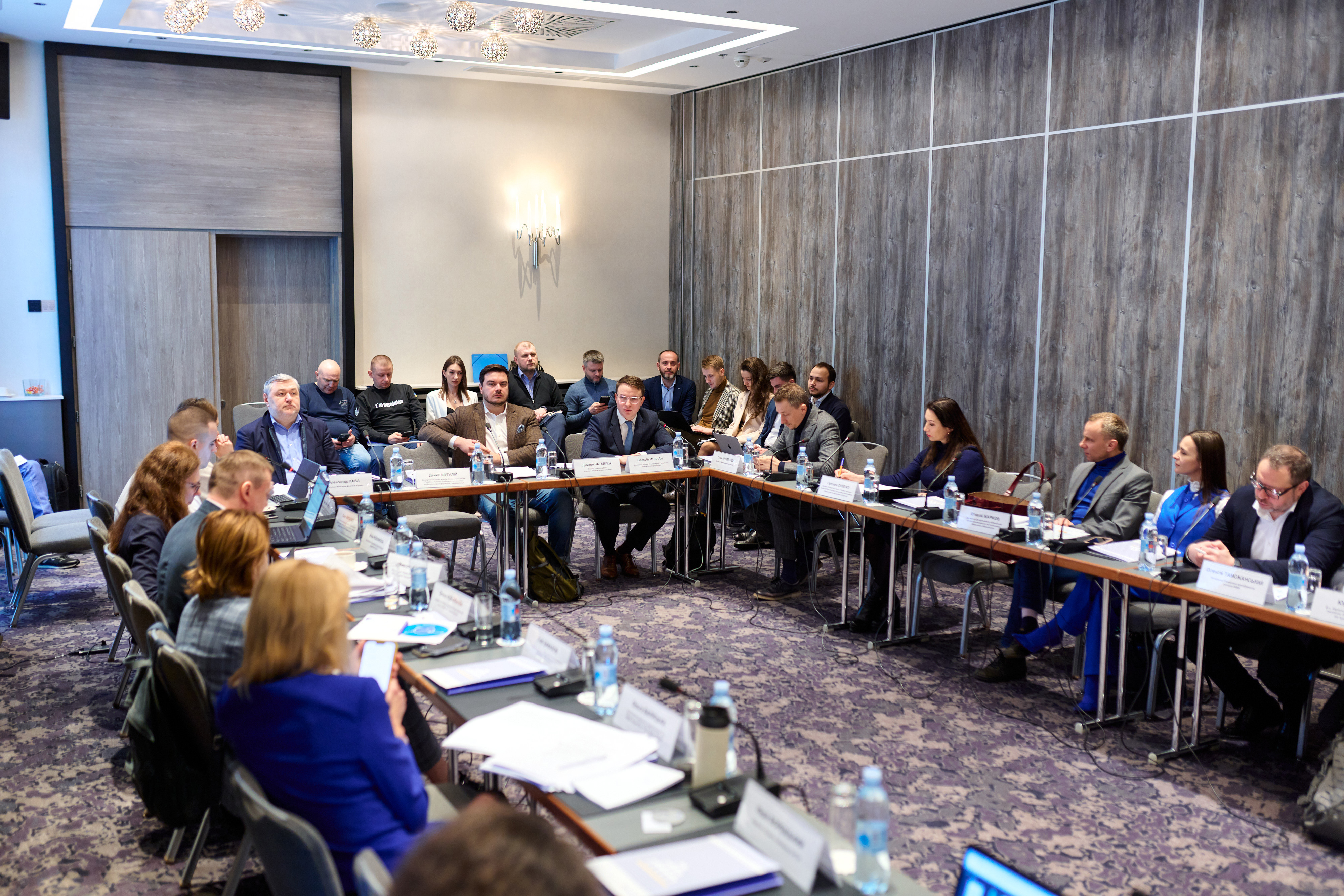
On April 20, the EU Project Pravo-Justice held the round table “Management of State Property: Privatization, Liquidation, Corporate Governance, and Compliance”. The participants to the event were MPs, representatives of the Ministry of Justice of Ukraine, the Ministry of Finance of Ukraine, the Ministry of Economy of Ukraine, the State Property Fund of Ukraine, the Asset Recovery and Management Agency (ARMA), NAPC, PwC Ukraine, NEC “Ukrenergo”, SC “Ukroboronprom”, JSC “Ukrzaliznytsia”, UA Transmission System Operator, French Agency for International Technical Assistance “Expertise France”.
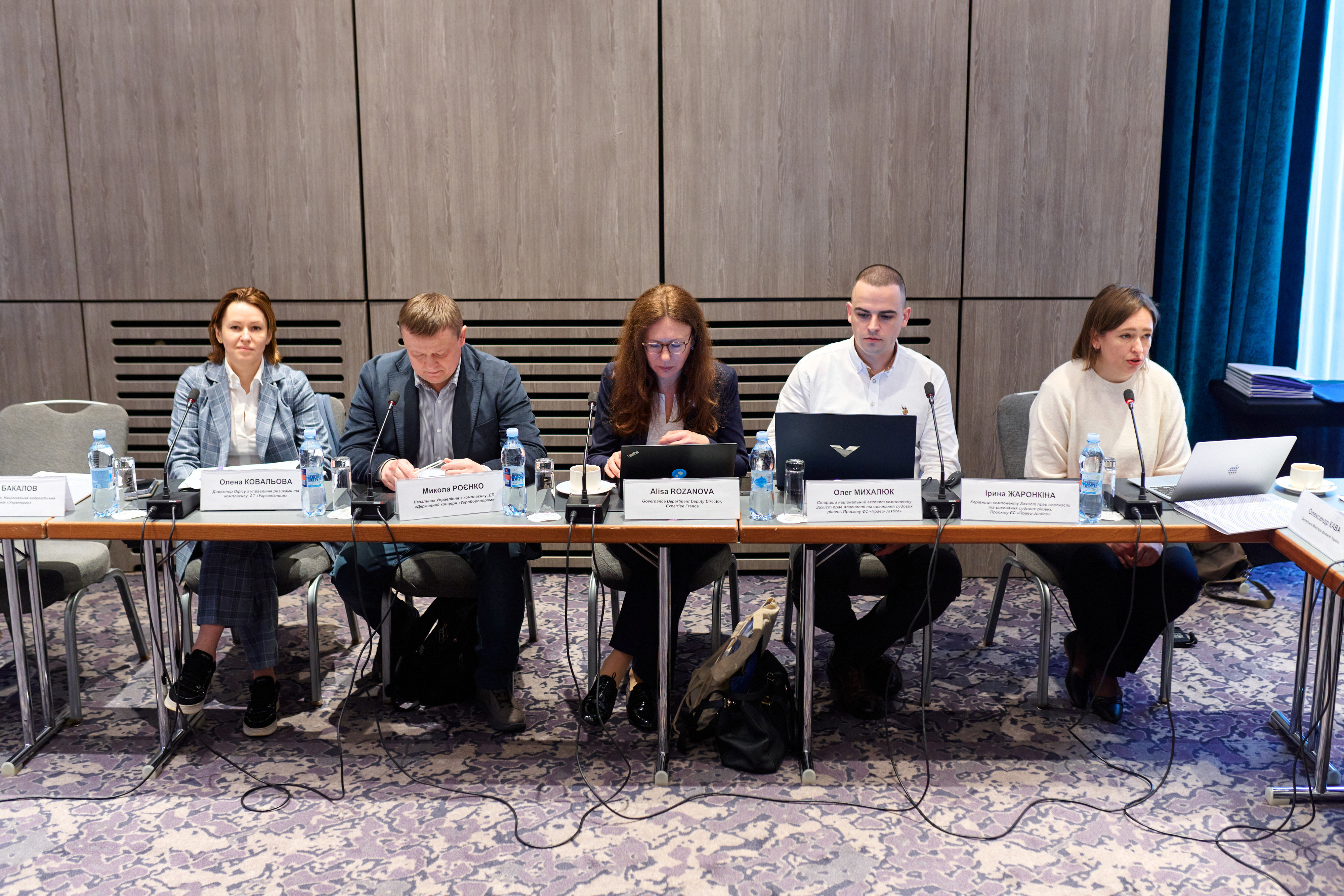
The event was aimed at examining the challenges and prospects in the management of state assets; discussing the ways to increase transparency and accountability in the management of state enterprises; learning best practices of corporate governance in the state sector, alongside discussing the role of the private sector in the management of state assets.
“In the course of our research, it has been established that one of the largest debtors in Ukraine is the State, namely state-owned enterprises. Moreover, it is a protected debtor. Decades of moratoria on the execution of court decisions have led to a huge problem taking roots. It is literally huge in terms of amount: there are more than three thousand enterprises, which we collectively call state-owned enterprises, and billions of debt, the exact amount of which has not been calculated as of now,” mentioned Iryna Zharonkina, Property Rights and Enforcement Component Lead, EU Project Pravo-Justice, in her opening remarks ".
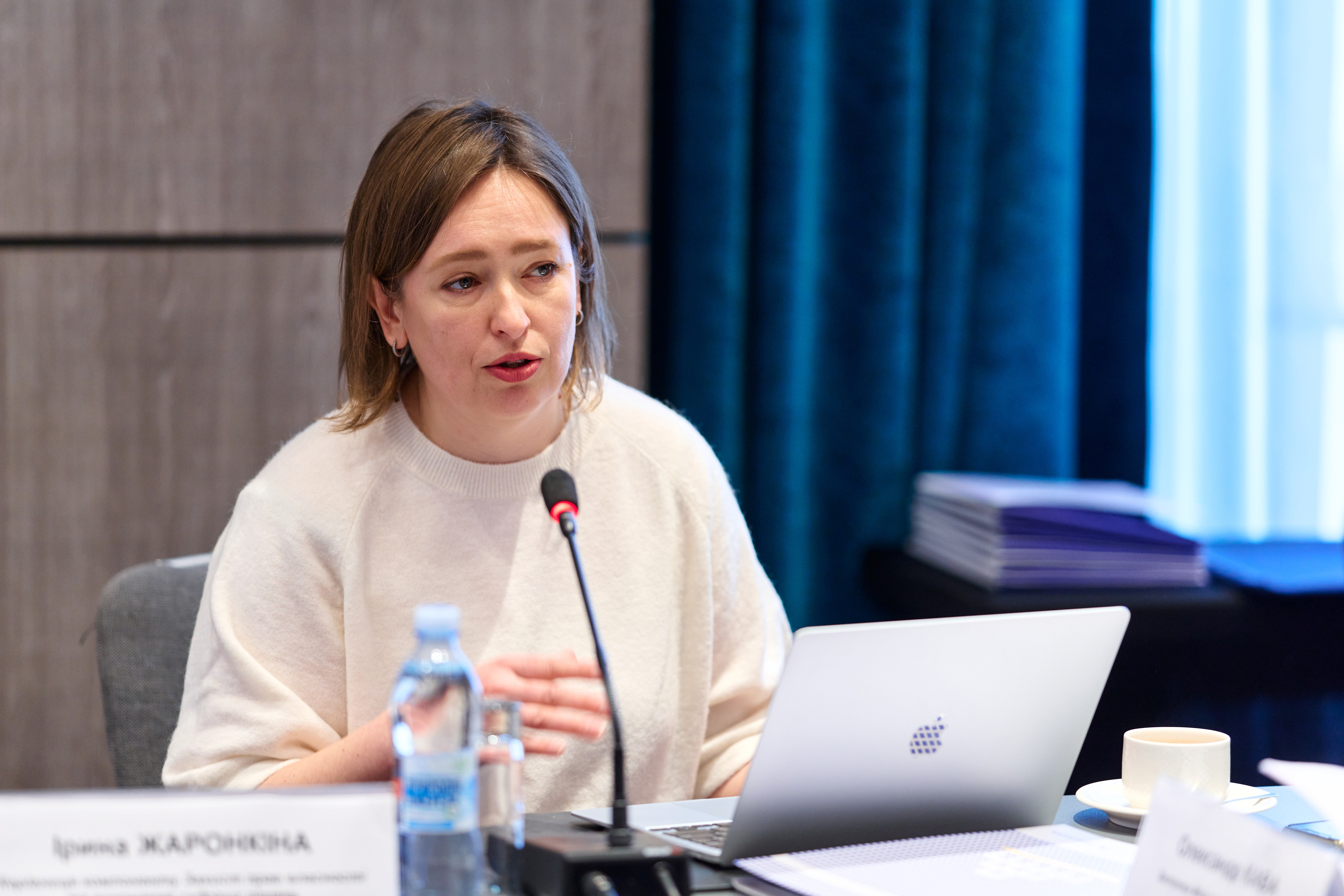
At the same time, she added, today one can see some changes in terms of the formation of the policy of managing state property, state enterprises, and solving the problems of accumulated debt.
Dmytro Natalukha, Chairman of the Committee of the Verkhovna Rada of Ukraine on Economic Development, mentioned in his speech that there were more than 3,500 state-owned enterprises. According to him, at different times of the country’s independence, diametrical policies were pursued in relation to those enterprises.
“Over the past 30 years, the state has gone to extremes. At first, we cherished each enterprise as an apple of the eye. Each enterprise seemed to be of strategic significance. Then we went to another extreme which consisted in the decision to sell everything to the last. Today, probably for the first time ever, there is certain balance between three fundamental principles of state property – liquidation, privatization, and effective management of state property. Such balance is provided for in two draft laws – No. 8205 and No. 8250,” said Dmytro Natalukha.
He outlined that the draft law No. 8205 provides the process of termination of state-owned enterprises to be carried out as quickly and smoothly as possible for the State, creditors, and employees. The document also unlocks privatization, that of the large enterprises, in the first place. The draft law No. 8250, according to Dmytro Natalukha, is aimed at institutional reform of the State Property Fund of Ukraine.

"Today, the enterprises are dispersed among dozens of state authorities. The philosophy behind the draft law No. 8250 is to concentrate all state-owned enterprises in the hands of one stakeholder. So that there would be a sort of umbrella covering everything having the word “state” in its name,” added Dmytro Natalukha.
Oleksiy Movchan, Deputy Chairman of the Verkhovna Rada of Ukraine's Committee on Economic Development, told about the legislative policy pursued by Ukraine in the past four years in respect of state property. He informed that the Law of Ukraine “On Leasing of State and Communal Property” had already been adopted, which changed approaches to the processes of leasing state property, making them transparent and competitive.
“The State started making more money on leasing of its property,” said Oleksii Movchan. The MP underlined the importance of the reform on the demonopolization of “Ukrspirt”, since the sales of Ukrspirt’s facilities constituted the lion’s share of revenues from general privatization. The politician also mentioned the Law of Ukraine on canceling the list of enterprises prohibited from privatization. The document gave impetus to the enterprises’ entry to the market.
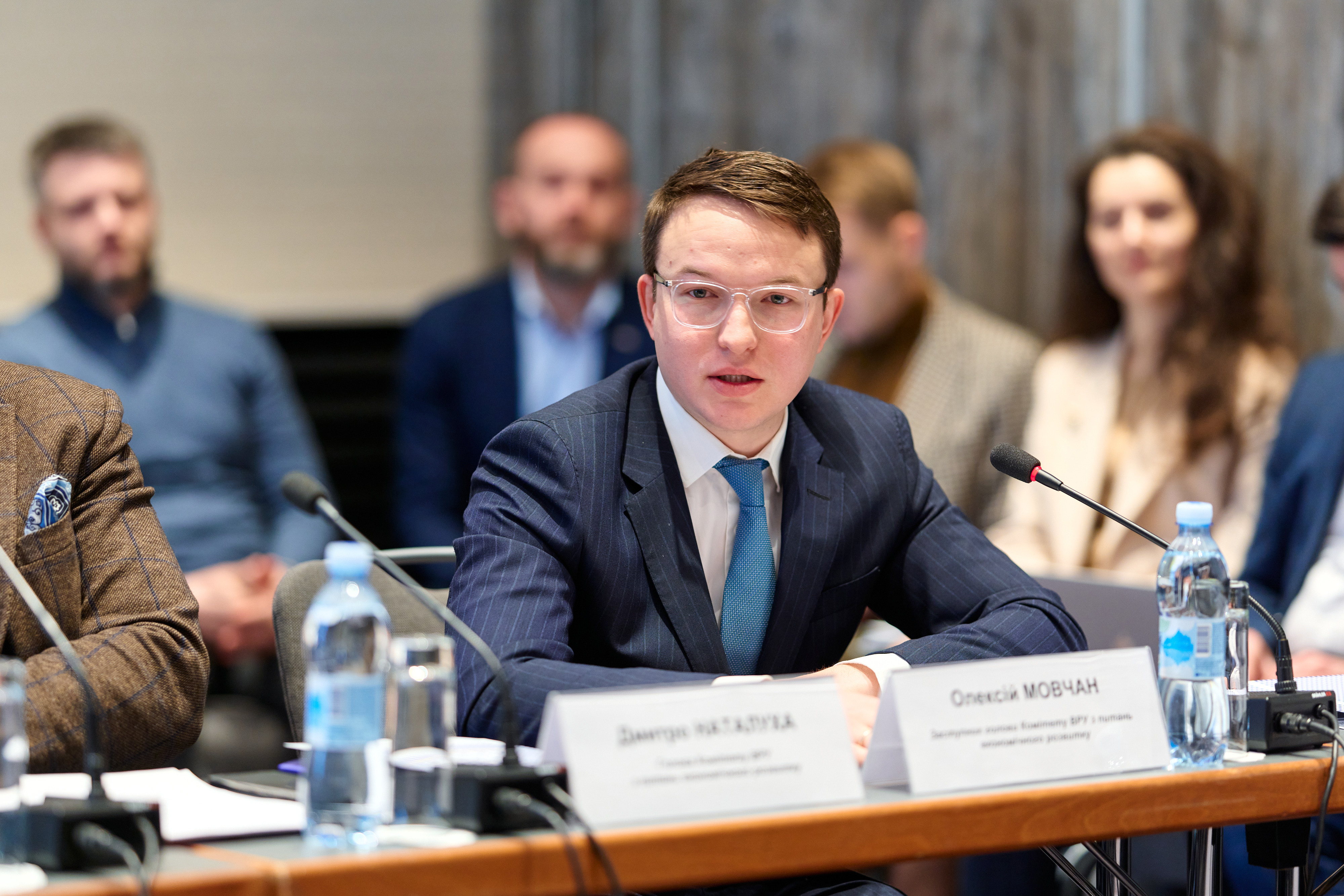
Oleksii Movchan emphasized that the MPs had also strengthened parliamentary control over privatization. He also mentioned the adoption of the draft law No. 4409, which amended the Code of Ukraine on Bankruptcy Procedures specifically in matters of bankruptcy of state-owned enterprises, as well as the draft law No. 6101, which governs the management of corporatized state enterprises.
“The adoption of draft law No. 7451, which we passed last year, was of great importance. It accelerated a large number of privatization processes. We can already see its positive implications. Eight months after the adoption of this Law, the state budget received almost UAH 2.6 billion, having held only 8% of auctions. To give a better understanding, over five years of privatization, the total of UAH 10 billion has been received by the state budget,” explained Oleksii Movchan.
The MP also briefed the participants to the round table on the draft laws his committee had been working on. These are, in addition to the draft law No. 8250, legislative initiative No. 4020 on the list of enterprises that are strategic for the state and prohibited from privatization; the draft law No. 5593д – reform of corporate management; and the draft law No. 6102, which eliminates the gaps in the Law “On Leasing of State Property”.
“We still have two more ambitious goals – develop a draft law on the national wealth fund, so that the State has an asset management company that would invest in promising projects, and a draft law on the management of communal property,” said Oleksii Movchan.
Oleksii Sobolev, Deputy Minister of Economy of Ukraine, said that the Government’s policy is based on the idea of liquidation of state-owned enterprises as such.

“Such form of management is outdated, unclear, inconvenient, and overregulated. It is necessary to follow the path of corporatization, transformation of state-owned enterprises into joint-stock companies, LLCs, or transfer them to the State Property Fund for further privatization,” said Oleksii Sobolev. Mr. Sobolev presented a formula according to which each hryvnia from the privatization proceeds that go to the state budget generates four hryvnias of investment in these assets. According to him, the Ministry is finalizing the list of enterprises that will be prohibited from privatization. There will be some 120 to 150 names.
"For the remaining companies, we will create mechanisms for partial privatization,” added Oleksii Sobolev. Oleksandr Kava, Deputy Minister of Finance of Ukraine, provided statistics on the number and sectoral distribution of the state-owned companies in our country and in Europe.
“There are about 3,600 state-owned enterprises in Ukraine, 2,097 state-owned companies in Poland, almost 1,700 – in Sweden, 142 – in the Czech Republic, and 39 in Slovakia," Oleksandr Kava said, while also mentioning the mistakes that were made during privatization of state and communal property, in particular in the field of energy and infrastructure.
“Increased efficiency of state property management and privatization is important. We need a balanced approach to solve the issues that will contribute to the development of our economy, the creation of jobs, and the improvement of the quality of life of our people,” said Oleksandr Kava.
Svitlana Sukhenko, Lead of the Expert Group on legal institutes related to justice, Directorate of Justice and Criminal Justice of the Ministry of Justice, spoke in detail about the reasons for the introduction and the negative impact of moratoria on the execution of court decisions and bankruptcy. “Moratoria do not serve their original purpose – that of protecting the interests of the State, but on the contrary, they burden the state with new debts,” said Svitlana Sukhenko.
Vitalii Zharikov, Director of the Department of Solvency Restoration and Termination of Enterprises, State Property Fund of Ukraine, spoke about the state enterprises transferred to the Fund for management, and the peculiarities of privatization procedures. According to him, to date about 2,400 state-owned enterprises have been transferred to the Fund. Out of them: 660 are located in the occupied territory or the zone of active hostilities, 1,358 are not of interest for privatization (for 50% of these enterprises, the value of assets is close to the volume of claims made by creditors at any time), 270 – are being or will soon be privatized based on the triage-informed decisions, and another 150 are being processed (most likely, they will remain in state ownership). Oleksii Tamozhanskyi, Head of Asset Management Department, ARMA, spoke about the peculiarities of management of the property coming to the Agency.
“ARMA manages seized assets within the framework of criminal proceedings with the aim of preserving their economic value. The main goal is to ensure a balance between the property rights of the subject of criminal proceedings and further possible compensation in the event that the seizure is canceled or he/she is found not guilty, so that he/she could receive his/her property or compensation for the restrictions that had been in place for the period of the pre-trial investigation. ARMA may only sell movable property and only under court decision. After the sale, the funds shall be accumulated in the deposit account. Only in the case of a guilty verdict, the funds are credited to the state budget,” explained Oleksii Tamozhanskyi and added, that over the past five years, there was only one court decision regarding the transfer of funds to the local budget to cover damages caused by criminal proceedings.
Yurii Sverba, Head of the Public and Private Sector Integrity Development Department, NAPC, described the state and prospects for the development of anti-corruption compliance at state-owned enterprises.
“Where are we going to? Towards the development and implementation of individual property policies at state-owned enterprises and the separation of the functions of an owner, a regulator and a policy-making body. Towards the introduction of annual independent audit of economic entities of the state sector. All economic entities, where supervisory boards have been established, are obliged to transfer powers of control over the implementation of anti-corruption measures,” Yurii Sverba said.
Mykola Roienko, Compliance Officer of the SC “Ukroboronprom” spoke about the organizational transformations of the Consortium”.
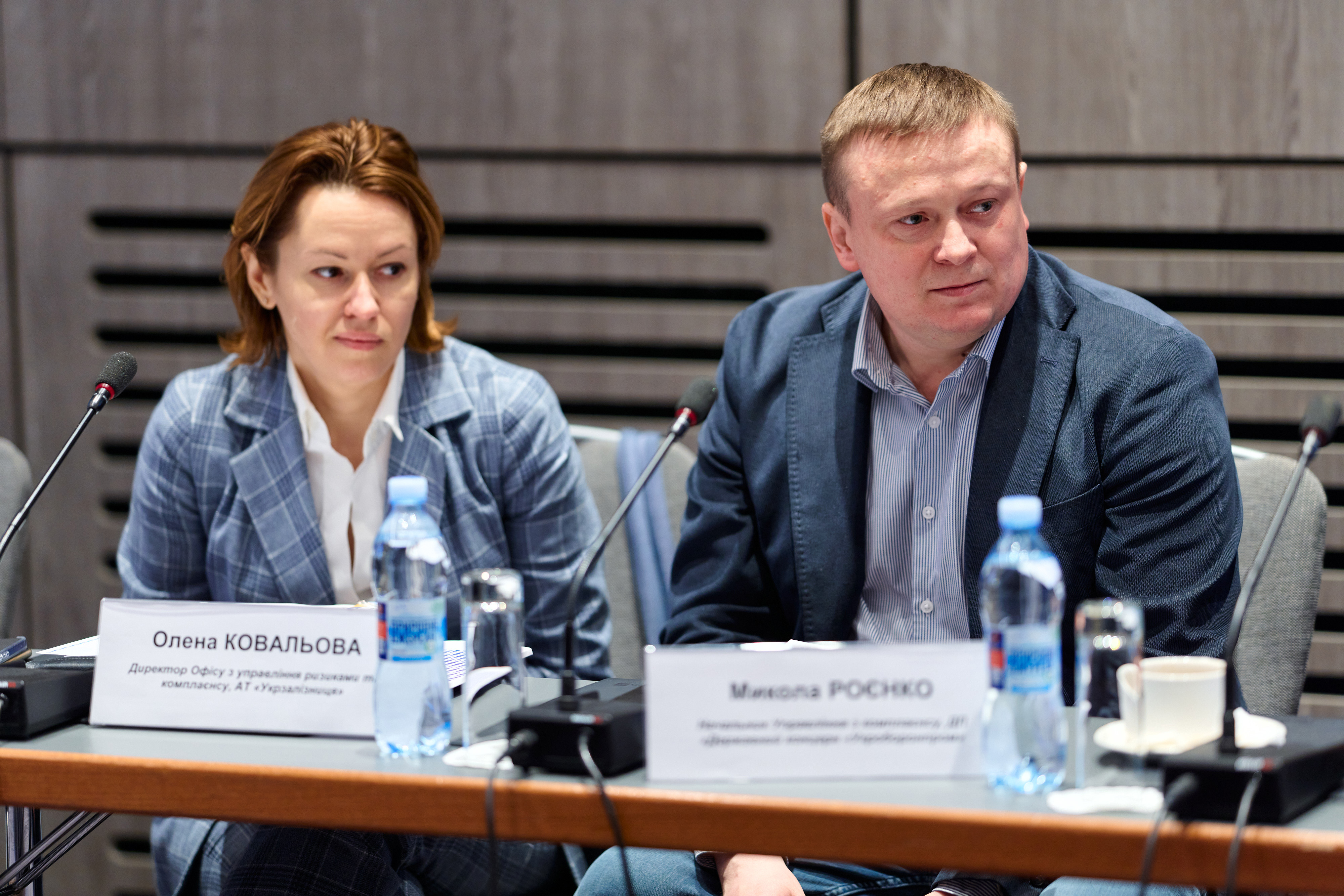
“The Consortium is being transformed into a joint-stock company. About 30 enterprises that are part of the Consortium have already been transformed into economic entities. The next step is to create an independent supervisory board, which would be composed of three independent members and three representatives of the state. Then the tools of proper control could be developed”, Mykola Roienko said.
Hleb Bakalov, Compliance Officer of “Ukrenergo” talked about the corporatization of the company and the company’s compliance policy. Olena Kovaliova, Compliance Officer of “Ukrzaliznytsia”, spoke about about the peculiarities of broader interpretation of the concept of “compliance” at the railway company.
Yurii Voitsytskyi, Compliance Officer of the UA TSO, noted that best European practices giving more powers to compliance officers should be taken as a source of inspiration.
Video recording of the round table is available here